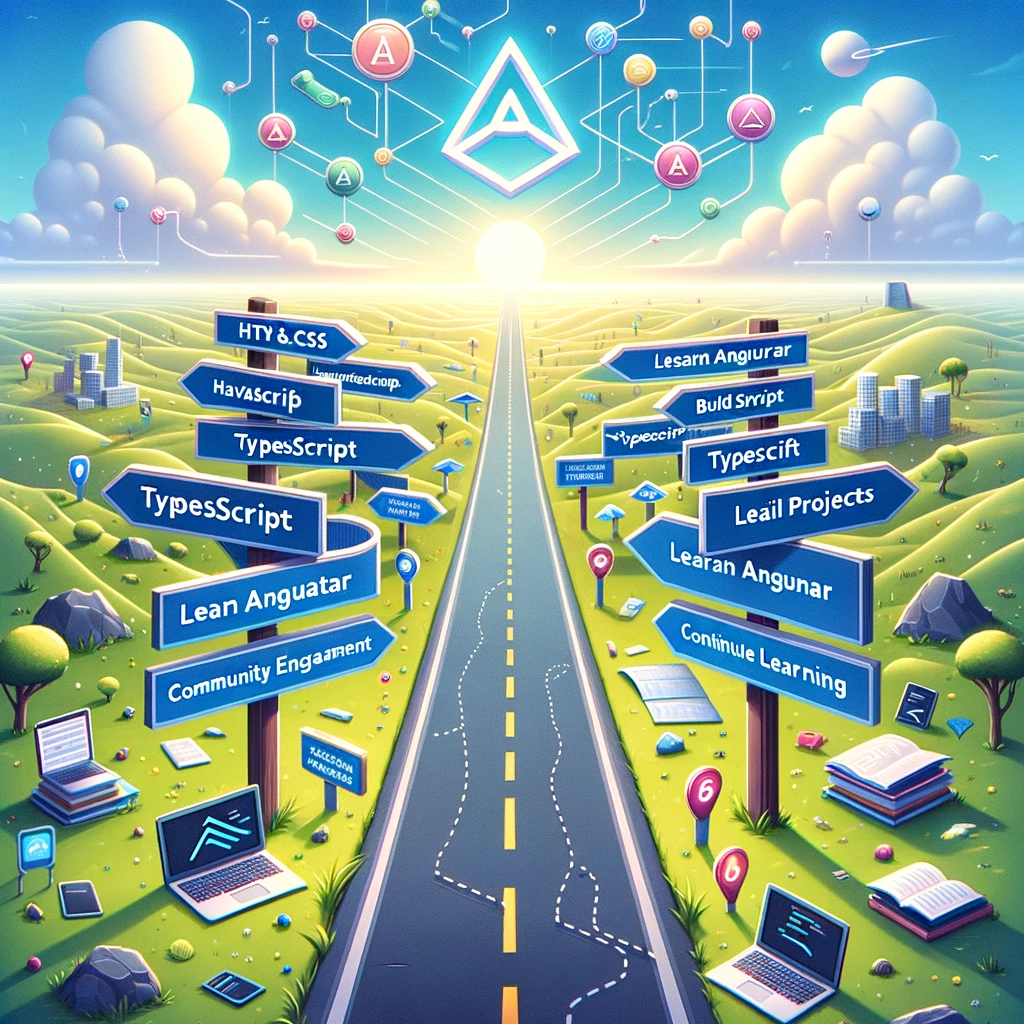To become an Angular developer, you need to follow a structured learning path that will equip you with the necessary skills and knowledge to build dynamic and responsive web applications using the Angular framework. Angular is a platform and framework for building single-page client applications using HTML and TypeScript. Developed and maintained by Google, it offers a comprehensive solution for developing web apps, with a wide range of tools and capabilities. Here’s a step-by-step guide to help you get started:
1. Understand the Basics of Web Development
Before diving into Angular, you should have a solid foundation in web development basics:
- HTML: The standard markup language used to create web pages.
- CSS: The style sheet language used for describing the look and formatting of a document written in HTML.
- JavaScript: A programming language that enables interactive web pages. Angular is built on TypeScript, which is a superset of JavaScript, so understanding JavaScript is crucial.
2. Learn TypeScript
Since Angular applications are built using TypeScript, gaining a good understanding of TypeScript is essential. TypeScript offers more robust typing and object-oriented features than JavaScript, making your web applications more scalable and maintainable.
3. Dive Into Angular
Once you’re comfortable with the basics, start learning Angular. Here are the key concepts and features you should focus on:
- Components and Templates: Learn how to build reusable UI parts.
- Directives and Pipes: Understand how to modify DOM elements and format data.
- Services and Dependency Injection: Master the use of services for business logic and data services, and understand how Angular’s dependency injection system works.
- Routing: Learn how to manage navigation within your application.
- Forms: Get to grips with handling user input and form validation.
- RxJS and Observables: Understand asynchronous programming patterns used in Angular for handling data streams and propagation of changes.
4. Practice Building Applications
Theory is important, but practice is crucial. Start by building simple applications and progressively increase the complexity of your projects. This will help you understand how to apply Angular concepts in real-world scenarios.
5. Join the Angular Community
Engaging with the Angular community can provide support, inspiration, and opportunities for collaboration. Participate in forums, attend meetups or conferences, and contribute to open-source Angular projects.
6. Stay Updated
Angular is continuously evolving, with new versions and features being released regularly. Stay updated with the latest changes by following the official Angular blog, attending webinars, and taking advantage of updated learning resources.
7. Build a Portfolio
As you gain skills and complete projects, showcase your work in a portfolio. This is crucial when applying for jobs as it demonstrates your capabilities to potential employers.
8. Consider Certification
While not mandatory, obtaining certification can validate your Angular skills and knowledge. Look for reputable certification programs that are recognized in the industry.
Resources for Learning Angular
- Official Angular Documentation: A comprehensive resource that covers all aspects of Angular.
- Online Courses: Platforms like Coursera, Udemy, and Therichpost offer courses on Angular, ranging from beginner to advanced levels.
- YouTube Tutorials: Many developers and educators share their knowledge on YouTube, providing visual and practical guides to learning Angular.
By following these steps and dedicating time to learning and practice, you can become proficient in Angular development and start building sophisticated web applications.

Leave a Reply
You must be logged in to post a comment.